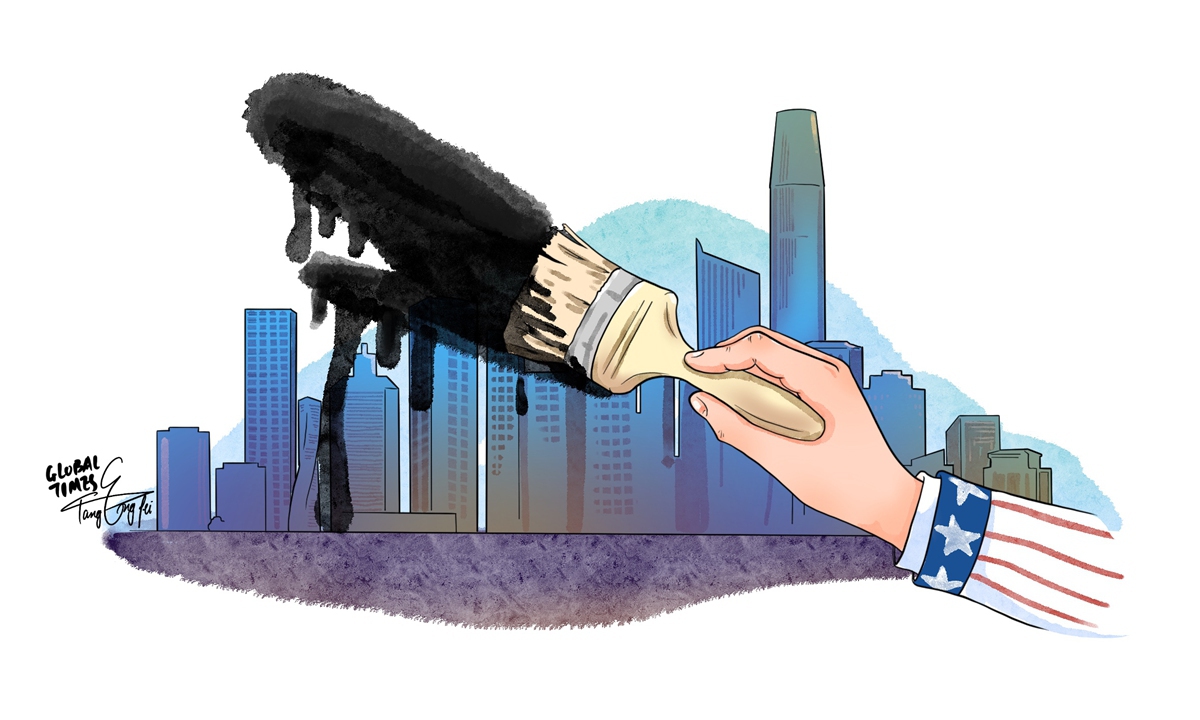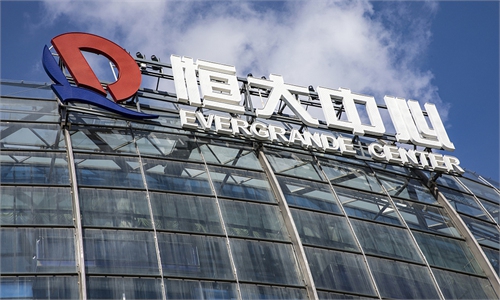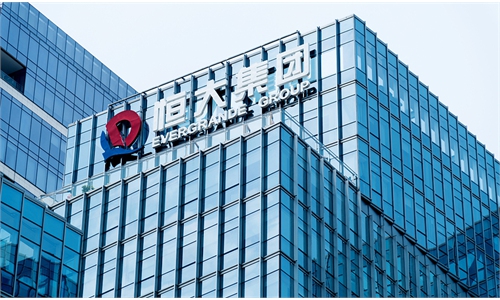
Illustration: Tang Tengfei/Global Times
The world's most indebted real estate developer China Evergrande Group has managed to avert default again and again, ever since the news about its liquidity crunch emerged. The fact that the Chinese real estate giant's capital pipeline is not that strained as anticipated has even triggered speculation as to how Evergrande has been able to find the money it needed.The latest news may just answer that question. Evergrande's billionaire founder, Xu Jiayin, is reportedly to have raised more than 7 billion yuan ($1.1 billion) in cash by selling off personal assets, handing the money to the group for the monthly payment of employee salaries, interest payment on bonds at home and abroad, and resumption of projects operation.
To a certain extent, it is a comfort to the market that Xu is willing to try his best to avoid a worst-case scenario. His assets sale and Evergrand's selling of equities these days is actually a proof that the group is far from insolvent, which may defy earlier market expectation that a Chinese version of Lehman Brothers was all but imminent.
There is no consensus yet about whether Evergrande put the worst behind it. Last week, Evergrande headed off a default by making last-minute interest payments on bonds for the third time in recent weeks. While Evergrande managed to meet deadlines again and again, some Western observers still believe its approach to staying afloat is unsustainable.
But one thing is for sure: the Chinese economy won't be dragged down by the trouble in its real estate sector, which is definitely not like the kind of crisis portrayed by Western media outlets.
It is not the first time for the US to play up the problem with China's real estate sector where they said a crisis is spreading. Even the US Federal Reserve said in a bi-annual financial stability report last week that "stresses in China's real estate sector which could strain the Chinese financial system, with possible spillovers to the US."
It is true that other Chinese developers are also facing liquidity challenges, but there is no sign that the trouble in the real estate sector will be out of control and endanger the financial sector. And the lack of official indication of a bailout could be the best convincing proof.
The Chinese government has made clear its determination to deflate the real estate bubble and reduce credit risks. If dangerous bubbles are not dealt with now, the price of tackling them in the future will only be higher.
Thus, with risks still manageable, the government is unlikely to change its pace of economic adjustment or give up its priority targets just because of external voices or market speculation.
China's latest economic indicators for October are generally better than expected, showing that its economic recovery remained unabated. This has given China a strong basis to maintain its strategic adjustment focus for further high-quality growth. It is the economic competence that gives us more confidence in the face of external pressure.



